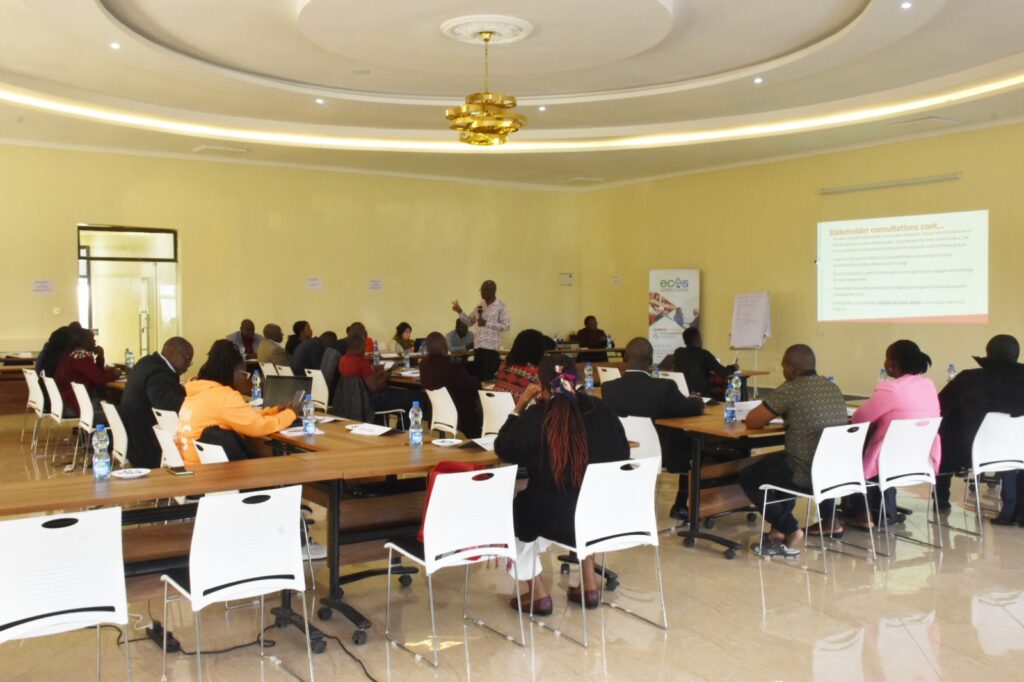
INTERNATIONAL TRAINING ON CITIES, URBAN RESILIENCE, AND SUSTAINABILITY
COURSE BACKGROUND
Urban areas are at the forefront of climate change impacts, rapid population growth, and environmental challenges, making urban resilience and sustainability critical components of modern development planning. As cities expand, they face increasing risks from climate-related disasters, resource depletion, pollution, and infrastructure strain, necessitating strategic planning and governance to build sustainable, livable, and resilient urban environments.
This course, offered under the Environmental Capacities and Sustainability (ECAS) Institute, provides a comprehensive understanding of sustainable urban development strategies. It focuses on how cities can adapt to climate change, enhance resilience, and integrate sustainability into urban planning and infrastructure development. Participants will explore key urban resilience frameworks, governance mechanisms, and innovative solutions to address the pressing environmental and socio-economic challenges faced by urban communities.
Through expert-led discussions, real-world case studies, and interactive learning, the course equips professionals with the knowledge and tools to develop sustainable urban policies, implement climate adaptation strategies, and foster resilient communities that thrive in the face of environmental and social changes.
COURSE OBJECTIVES OF THE TRAINING
By the end of this course, participants will be able to:
- Understand the concepts of urban resilience and sustainability and their importance in the face of climate change and rapid urbanization.
- Analyze the key challenges and risks faced by urban areas, including climate-related disasters, infrastructure strain, and resource depletion.
- Explore policy frameworks, governance models, and planning strategies for building sustainable and resilient cities.
- Examine climate adaptation and mitigation strategies relevant to urban settings.
- Learn about smart cities, sustainable urban planning, and nature-based solutions for resilience.
- Understand financial mechanisms, investment opportunities, and public-private partnerships that support sustainable urban development.
- Develop practical skills for disaster risk management, community engagement, and inclusive urban governance.
- Study global best practices and case studies to apply innovative approaches to urban sustainability and resilience.
WHAT YOU WILL LEARN
Participants will gain knowledge and skills in:
- Fundamentals of urban resilience, sustainability, and climate adaptation.
- Key urban sustainability challenges and solutions in infrastructure, energy, water, and waste management.
- Disaster risk reduction, emergency preparedness, and post-disaster recovery in urban areas.
- Sustainable urban planning and smart city innovations.
- Policy instruments and governance structures for resilient cities.
- The role of social equity and community participation in sustainable urban development.
- Financing mechanisms for climate-smart urban projects and sustainable infrastructure.
- Global case studies and lessons from successful urban sustainability initiatives.
DURATION AND PROGRAM
TARGET PARTICIPANTS
This course is designed for professionals involved in urban planning, climate resilience, sustainability, and disaster risk management. It is ideal for government officials, policymakers, urban planners, architects, environmental managers, and civil society leaders working to build sustainable and climate-resilient cities.
Additionally, the course is beneficial for private sector professionals, researchers, non-governmental organizations (NGOs), and development agencies focusing on sustainable infrastructure, smart city innovations, and community-based resilience initiatives. Participants will gain insights into policy frameworks, financing mechanisms, and governance structures essential for promoting urban sustainability and resilience.
TRAINING MODULES
| No | Module | Details | |
| 1. | Introduction to Urban Resilience and Sustainability |
|
|
| 2. | Climate Change Adaptation and Mitigation in Cities |
|
|
| 3. | Sustainable Urban Planning and Smart Cities |
|
|
| 4. | Water, Energy, and Resource Management in Urban Areas |
|
|
|
5.
|
Social Inclusion, Equity, and Governance in Urban Resilience |
|
|
| 6. | Disaster Risk Management and Emergency Preparedness in Cities |
|
|
| 7. | Financing Urban Resilience and Sustainable Development |
|
|
| 8. | Case Studies and Practical Applications |
|
|
TRAINING STYLE
This course adopts a dynamic and interactive training approach that combines expert-led lectures, real-world case studies, and practical exercises. Participants will engage in interactive discussions and scenario-based learning, allowing them to analyze challenges and develop innovative solutions for urban resilience and sustainability. Workshops and group exercises will enhance problem-solving skills, while policy simulations will provide hands-on experience in governance and decision-making processes. Case studies from successful cities worldwide will offer insights into best practices and lessons learned. Additionally, where feasible, field visits may be included to expose participants to real-life urban sustainability initiatives. This holistic training approach ensures that participants gain both theoretical knowledge and practical skills to implement sustainable urban solutions effectively.
9. GENERAL NOTES
- Training manuals and additional reference materials are provided to the participants.
- Upon successful completion of this course, participants will be issued with a certificate.
- We can also do this as a tailor-made course to meet organization-wide needs. Contact us to find out more: info@ecasiafrica.org.
- Payment should be sent to our bank account before the start of training and proof of payment sent to: info@ecasiafrica.org.
ABOUT ECAS INSTITUTE
The ECAS Institute designs and delivers independent and targeted training, research, and consulting services. Our work focusses on climate change and resilience building, carbon markets, renewable energy, nature-based solution, biodiversity conservation, agriculture and food systems, We are located in Nairobi Kenya and work across the African region. We have implemented training and research assignments in Kenya, Tanzania, Uganda, South Sudan, Somalia, Malawi, Rwanda, Congo, and South Africa. Globally, we have supported our partners from the UK, Denmark, Italy, Sweden, Germany, and USA.

